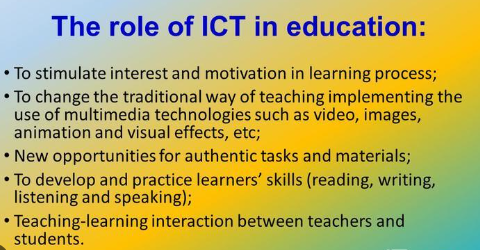In today’s rapidly evolving digital landscape, the field of ICT plays a pivotal role in shaping our world. From the rise of artificial intelligence to the proliferation of Internet of Things (IoT) devices, ICT innovations are transforming industries. Also, economies, and societies at large. In this blog post, we’ll look into the future of ICT, exploring key trends and technologies that are poised to reshape our world in the years to come.

The Rise of Artificial Intelligence (AI)
Artificial Intelligence (AI) continues to be a driving force behind ICT innovation. From virtual assistants to autonomous vehicles, AI-powered technologies are revolutionizing how we interact with machines and process information. As AI algorithms become more sophisticated and data-driven, we can expect to see even greater advancements in areas such as natural language processing, computer vision, and predictive analytics.
The Internet of Things (IoT) Revolution
The Internet of Things (IoT) is ushering in a new era of connectivity, where everyday objects are equipped with sensors, software, and connectivity, enabling them to collect and exchange data autonomously. From smart homes to industrial IoT applications, the proliferation of IoT devices is creating vast networks of interconnected systems that have the potential to optimize processes, improve efficiency, and enhance quality of life.
Blockchain and Decentralized Technologies
Blockchain technology, best known for its role in underpinning cryptocurrencies like Bitcoin, being adopted beyond the realm of finance. With its promise of secure, transparent, and immutable record-keeping, blockchain has the potential to disrupt industries ranging from supply chain management to healthcare. Moreover, decentralized technologies are empowering individuals to take control of their digital identities and assets, paving the way for a more equitable and transparent digital future.
Cybersecurity Challenges and Innovations
As ICT continues to advance, so too do the challenges associated with cybersecurity. With cyber threats becoming more sophisticated and pervasive, organizations must constantly innovate to stay ahead of cybercriminals. From AI-driven threat detection to biometric authentication methods, cybersecurity innovations are evolving to protect sensitive data and infrastructure in an increasingly interconnected world.
The Evolution of Cloud Computing
Cloud computing has become the backbone of modern ICT infrastructure, enabling organizations to scale resources, streamline operations, and drive innovation. As demand for cloud services continues to grow, we can expect to see advancements in areas such as edge computing, hybrid cloud architectures, and serverless computing, further blurring the lines between physical and virtual infrastructure.
Emerging Technologies in Healthcare
In the realm of healthcare, ICT innovations are revolutionizing patient care, diagnosis, and treatment. Emerging technologies such as telemedicine, wearable devices, and health monitoring apps are empowering individuals to take charge of their health. Furthermore, advancements in medical imaging, genomics, and personalized medicine are enabling healthcare providers to deliver more precise and effective treatments. The end result lead to improved patient outcomes and quality of life.
The Role of ICT in Sustainable Development
ICT plays a crucial role in addressing global challenges such as climate change, poverty, and inequality. By leveraging ICT solutions such as smart grids, energy management systems, and remote sensing technologies, we can optimize resource usage. Therefore, reduce carbon emissions, and build more sustainable communities. Additionally, ICT enables greater access to education, healthcare, and economic opportunities, empowering individuals and communities to thrive in an increasingly interconnected world.
Ethical Considerations in ICT Innovation
As we embrace the transformative potential of ICT, it’s essential to consider the ethical implications of technological advancements. Issues such as data privacy, algorithmic bias, and digital rights are becoming increasingly important in the digital age. It’s imperative that ICT professionals, policymakers, and society as a whole work together to ensure that technology is developed. Also, deployed in a responsible and ethical manner, with the well-being and rights of individuals at the forefront of decision-making processes.
Conclusion
The future of ICT holds immense promise and potential for driving positive change across all aspects of society. By embracing emerging technologies, addressing cybersecurity challenges, and fostering collaboration and innovation, we can harness the power of ICT. All these to create a more connected, intelligent, and resilient world for generations to come. Join us as we explore the exciting trends and technologies shaping the future of ICT.











